Life can feel overwhelming sometimes, and finding ways to manage stress, anxiety, or just stay grounded is important. Mental health apps make it easier to access tools like meditation, therapy, or mood tracking right from your phone. Whether you’re looking to build better habits or get professional support, these apps offer practical solutions for everyday challenges. Let’s dive into some of the top options that can help you take care of your mental wellness.
Mental health apps help you find calm and build resilience, and a well-organized kitchen can boost your well-being too. ReciMe brings that same sense of control to cooking, letting you save recipes from Instagram, TikTok, Pinterest, YouTube, or notes, create aisle-sorted grocery lists, and plan meals effortlessly, making healthy eating a stress-free part of your self-care routine. ReciMe’s intuitive app is available on iOS, with an Android version in development.

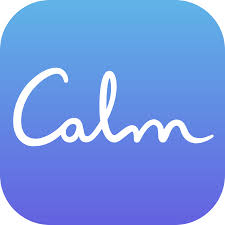
1. Calm
This app provides tools for mental wellness, focusing on relaxation and sleep. Users can access guided meditations, breathing exercises, and sleep stories designed to help with stress, anxiety, and sleep issues. The app also includes music and soundscapes for focus or relaxation, along with daily mindfulness sessions.
Additional features include mood tracking to log emotions and movement exercises like stretching to support physical well-being. Content is available for adults and children, with sessions varying in length to suit different schedules. The app offers both free and premium content, with more features unlocked through a subscription.
The interface is designed for ease of use, with a clean layout and options for beginners or experienced users. Regular updates add new meditations and stories. Users can set reminders to build a consistent routine.
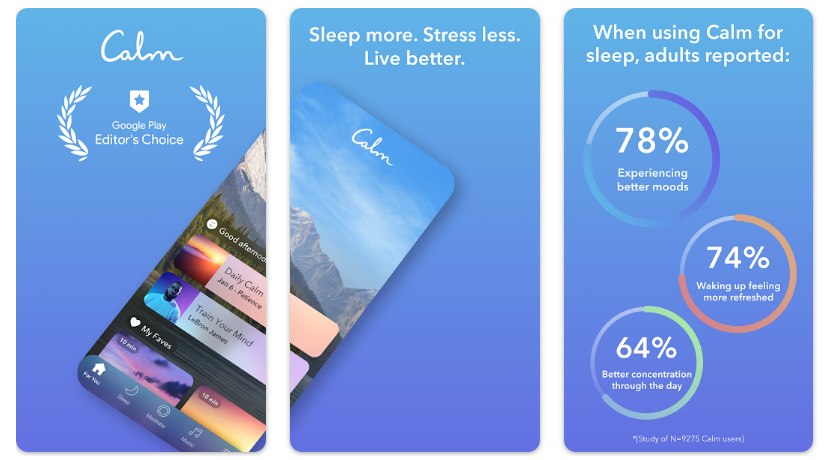
What Sets It Apart:
- Sleep stories narrated by well-known voices.
- Content for kids, including meditations and stories.
- Movement sessions to combine physical and mental wellness.
Contact Information:
- Website: www.calm.com
- App store: apps.apple.com/us/app/calm
- Google Play: play.google.com/store/apps/details
- Facebook: www.facebook.com/calm
- Instagram: www.instagram.com/calm
- Twitter: www.calm.com/twitter
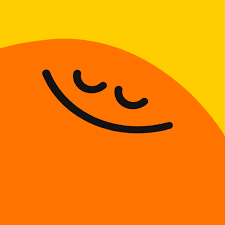
2. Headspace
This app offers mindfulness and meditation tools to support mental health. Users can access guided meditations, sleep sounds, and courses covering topics like stress, focus, and anxiety. The app also provides breathing exercises and motivational videos to encourage daily practice.
Features include progress tracking to monitor meditation habits and focus-oriented playlists for productivity. Movement sessions like yoga are available to connect physical and mental health.
The app has a simple design, making it accessible for new users. Content is organized into courses or single sessions, with options for different experience levels. Free content is available, with a subscription unlocking more features.
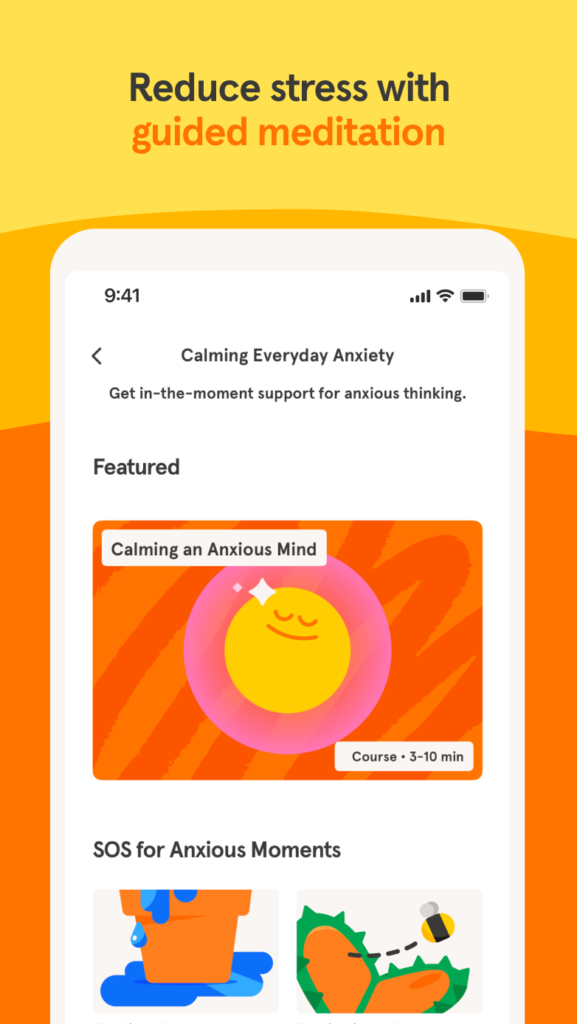
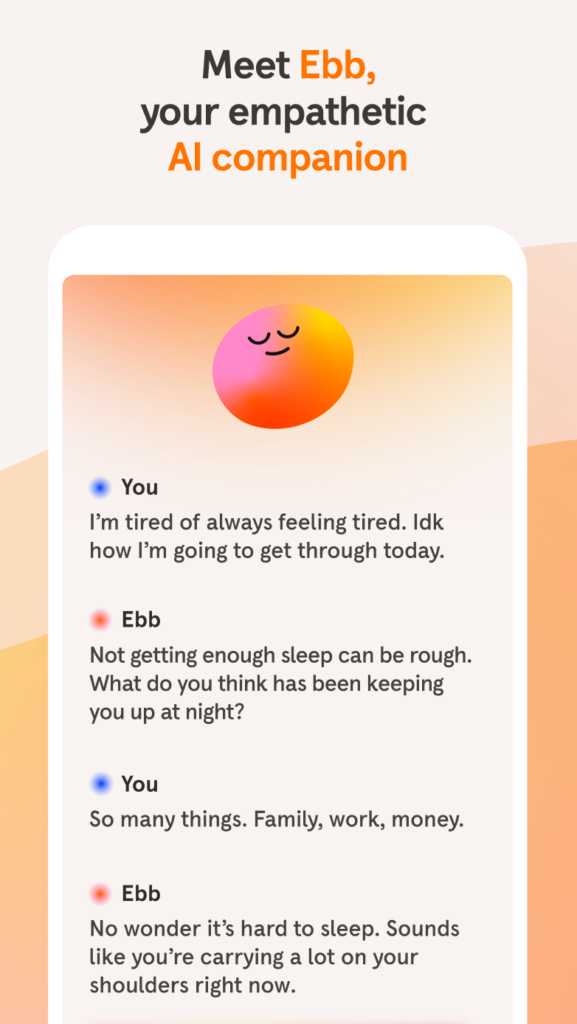
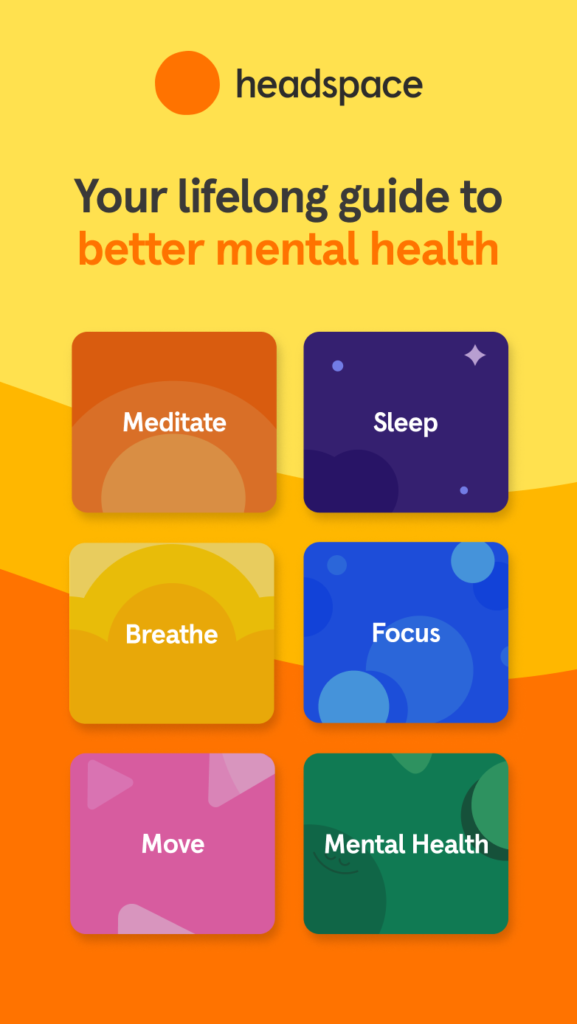
What Sets It Apart:
- Structured mindfulness courses for beginners.
- Visual meditations with nature imagery.
- Tools to support sobriety and trauma recovery.
Contact Information:
- App Store: apps.apple.com/us/app/headspace-meditation-health
- Facebook: www.facebook.com/Headspace
- Instagram: www.instagram.com/headspace
- Twitter: x.com/headspace

3. BetterHelp
This app connects users with licensed therapists for online counseling. Therapy is available through video, phone, live chat, or text messaging, with options to communicate between sessions. Users complete a questionnaire to match with a therapist based on their needs.
The app includes worksheets and journaling tools to support therapy goals. Group sessions led by therapists cover various mental health topics. Users can switch therapists if needed, and the service addresses issues like depression, anxiety, and relationships.
The platform is accessible on mobile devices and computers, with a focus on flexible scheduling. Some features are available without a subscription, but therapy requires a paid plan. The app provides resources for users to track progress.
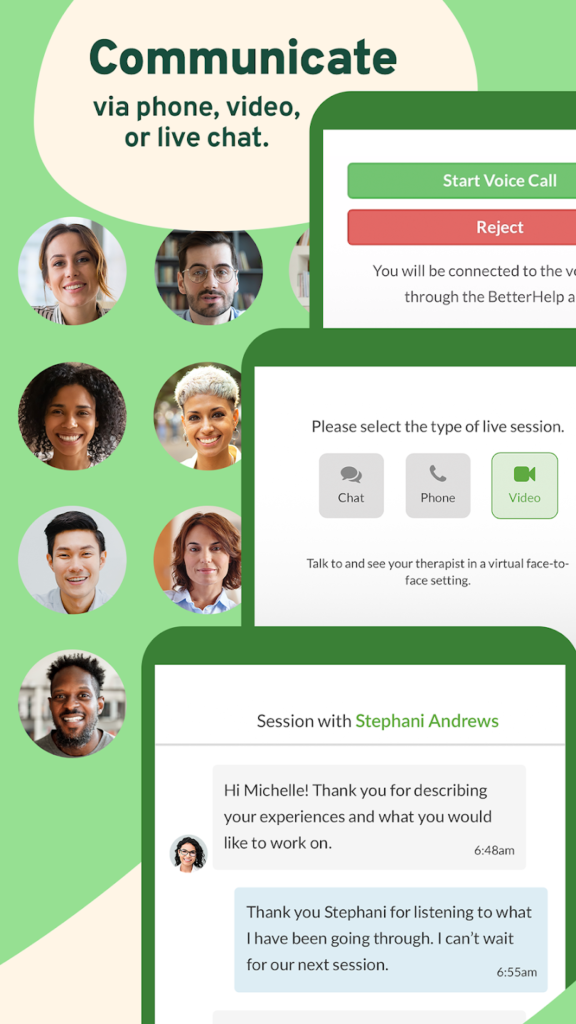
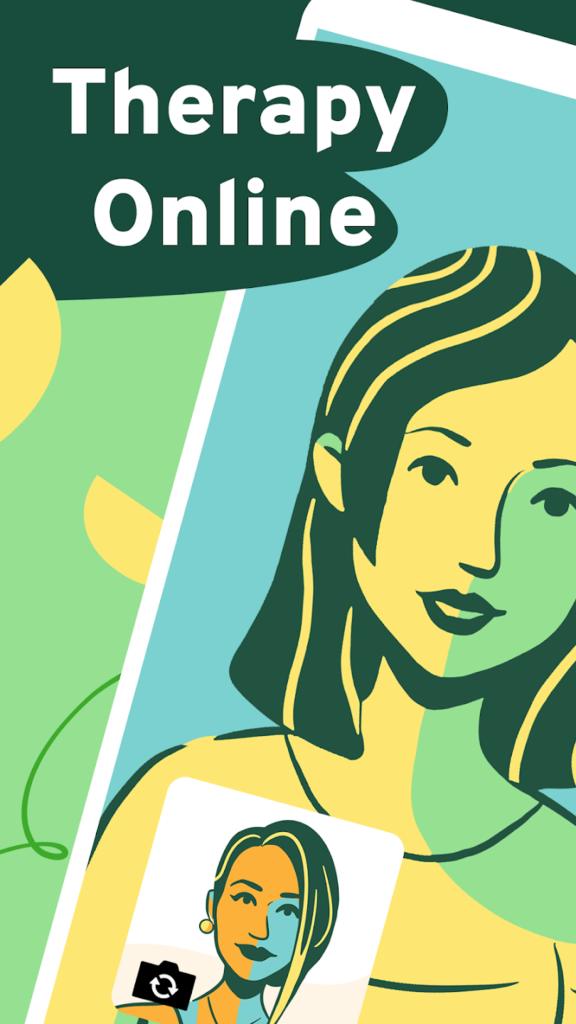
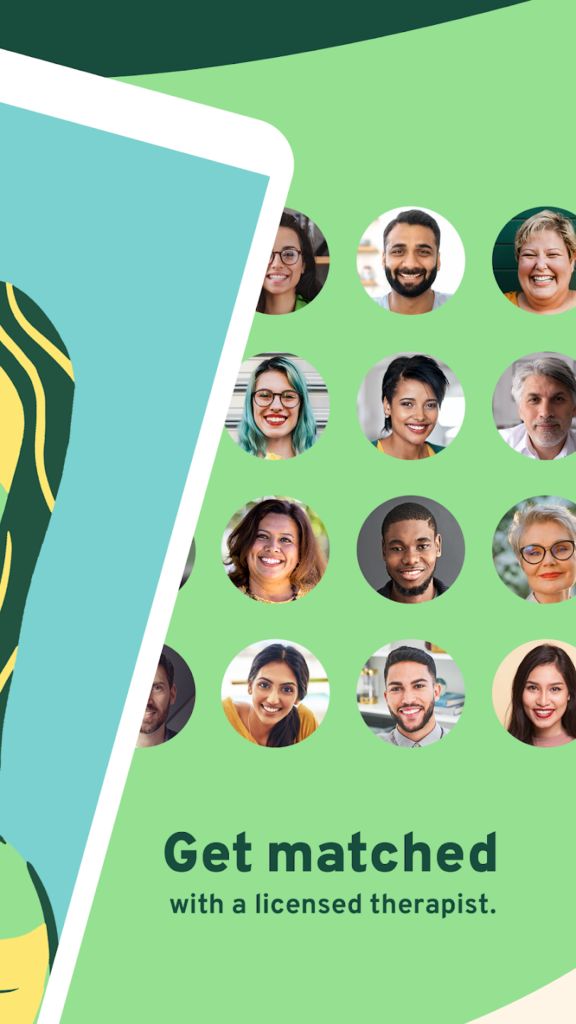
What Sets It Apart:
- Multiple communication methods for therapy.
- Group sessions for community learning.
- Option to change therapists easily.
Contact Information:
- App Store: apps.apple.com/us/app/betterhelp-therapy
- Google Play: play.google.com/store/apps/details
- Website: www.betterhelp.com
- Facebook: www.facebook.com/BetterHelp
- Instagram: www.instagram.com/betterhelp
- Twitter: twitter.com/betterhelp
- Tik-Tok: www.tiktok.com/@betterhelp
- LinkedIn: www.linkedin.com/company/betterhelp-com

4. Talkspace
This app provides online therapy with licensed therapists through text, audio, video, or live chat. Users can choose plans for individual, couples, or teen therapy, with psychiatry services also available. The app includes resources like meditations and journaling prompts.
Features include symptom tracking to monitor mental health progress and the ability to select or switch therapists. A self-guided version offers exercises and classes without therapist interaction. The app supports communication with therapists at any time.
The interface is designed for accessibility, with content available on mobile devices and computers. Free resources are limited, with paid plans unlocking therapy and additional tools. The app provides options for users to set therapy goals.
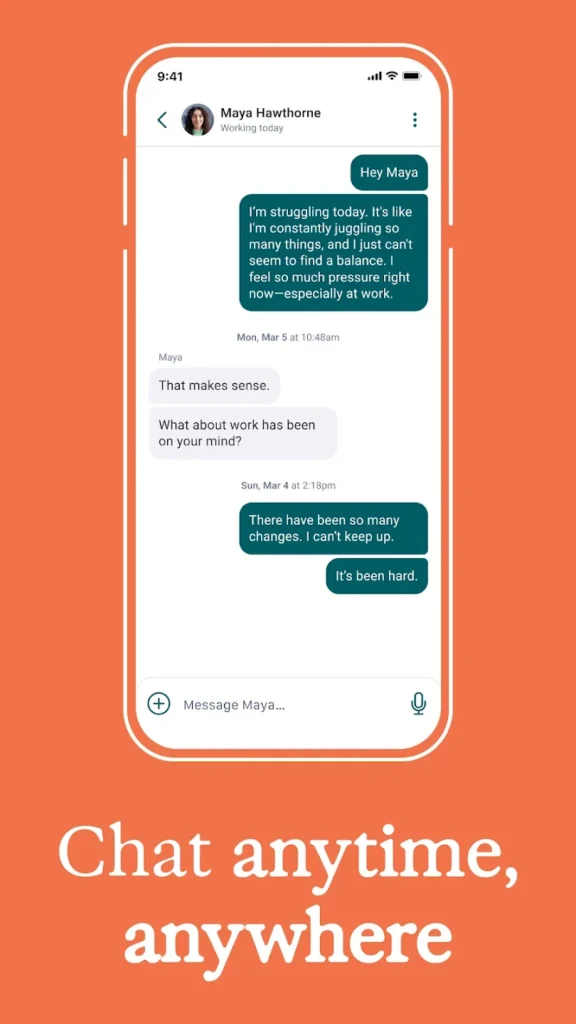
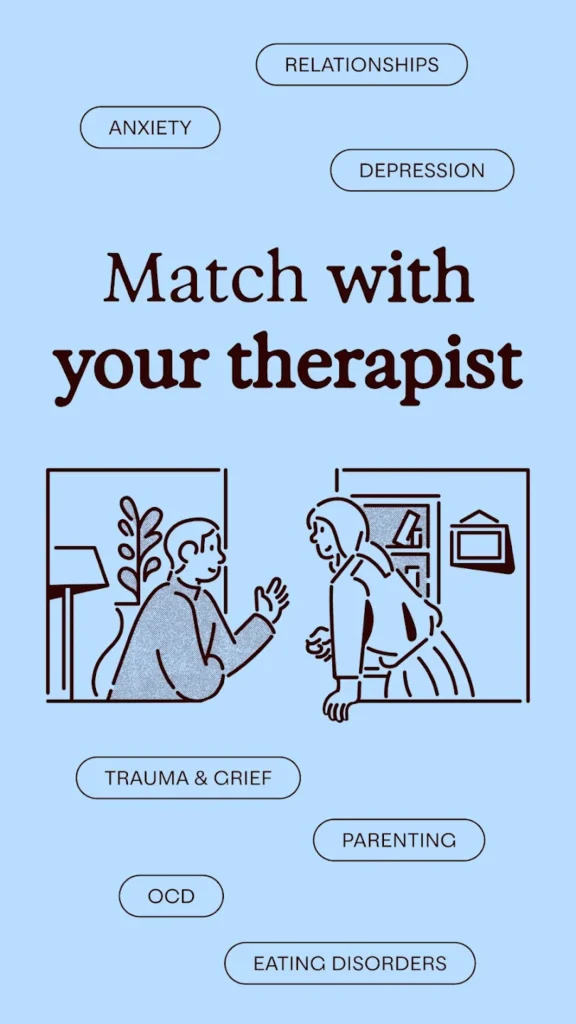
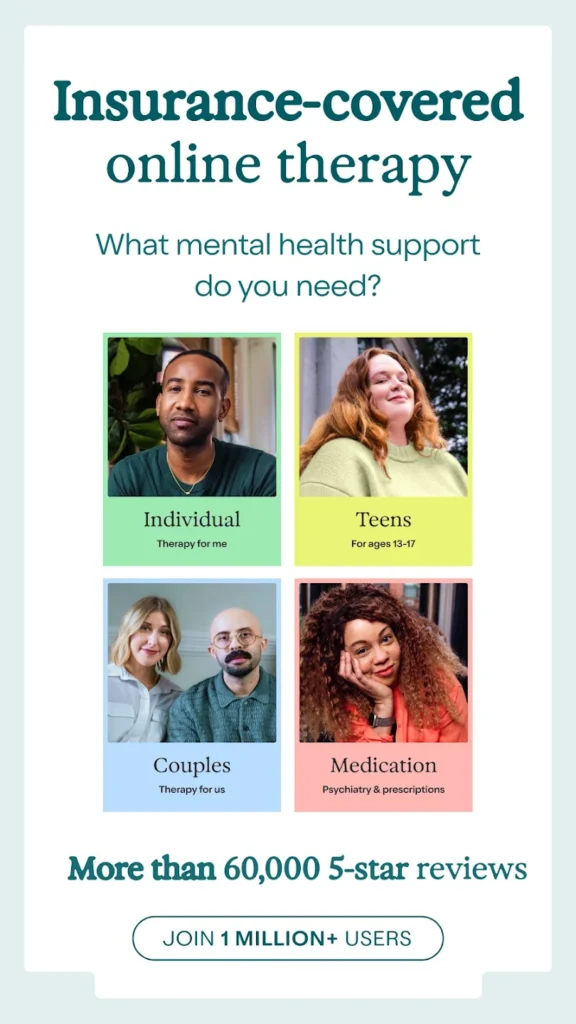
What Sets It Apart:
- Self-guided app option without therapy.
- 24/7 therapist messaging.
- Specialized plans for teens and couples.
Contact Information:
- App Store: apps.apple.com/us/app/talkspace-virtual-therapy-app
- Google Play: play.google.com/store/apps/details
- Website: www.talkspace.com
- Facebook: www.facebook.com/Talkspacetherapy
- Instagram: www.instagram.com/talkspace
- Twitter: twitter.com/talkspace
- LinkedIn: www.linkedin.com/company/talkspace-online-therapy
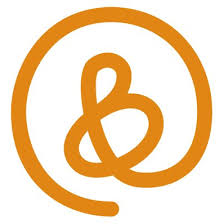
5. Brightside
This app combines therapy and self-guided tools for mental health support. Users can access video-based therapy sessions and medication management through psychiatry services. The app includes exercises based on cognitive behavioral therapy to address negative thoughts.
Symptom tracking allows users to log mood, sleep, and anxiety, with data shareable with providers. Personalized plans are generated based on user input, and a crisis support team is available for urgent needs. The app offers tools for self-reflection and skill-building.
The platform is available on mobile devices and computers, with a focus on integrating therapy and tracking. Paid plans are required for therapy and psychiatry, with varying levels of access. The app provides a structured approach to mental health care.
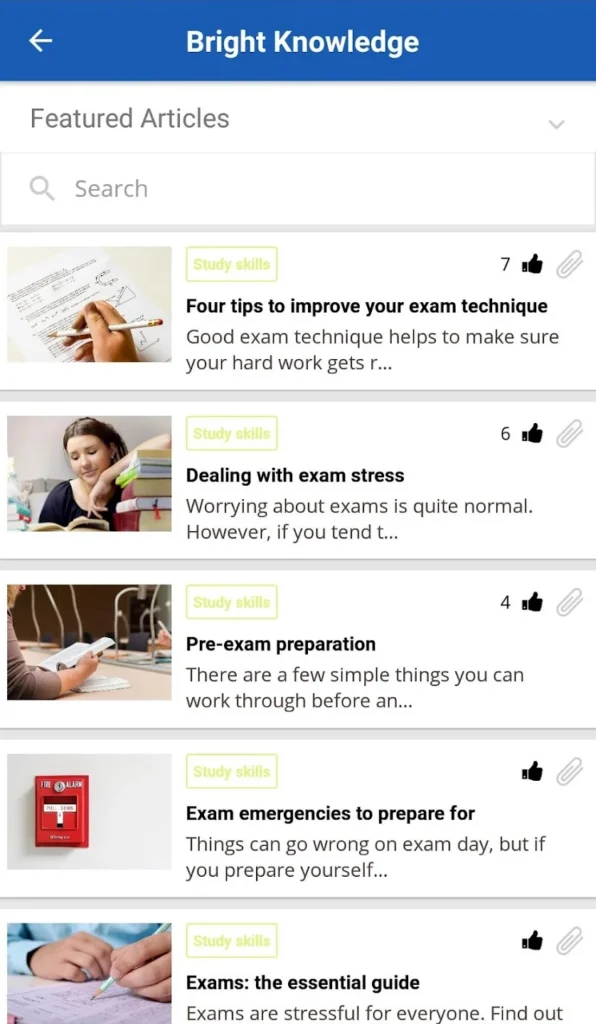
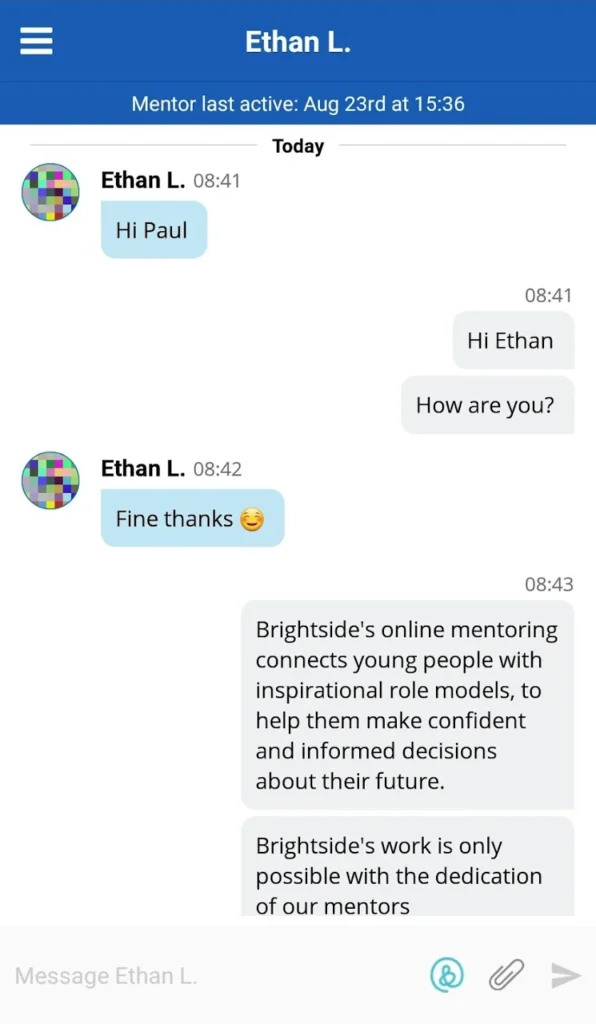
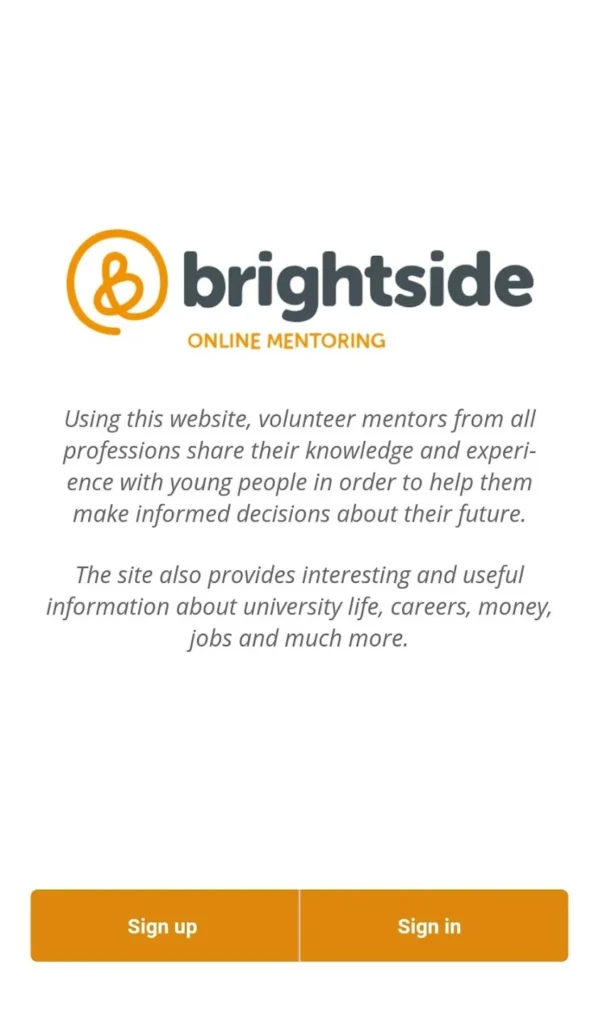
What Sets It Apart:
- Combination of therapy and medication management.
- AI-driven personalized plans.
- Crisis support team access.
Contact Information:
- App Store: apps.apple.com/us/app/brightside-mentoring
- Google Play: play.google.com/store/apps/details
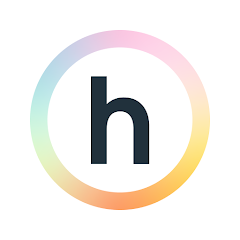
6. Happify
This app uses activities and games to support mental health, based on cognitive behavioral therapy and positive psychology. Users can engage in quizzes, exercises, and guided tracks to address stress, negative thoughts, or low mood. An AI coach provides tailored activity suggestions.
The app includes community forums for user interaction and content addressing specific issues like racial injustice. Meditations and mindfulness exercises are available to promote relaxation. Users can track their progress through the activities.
The interface is designed to be engaging, with a focus on interactive content. Free access provides limited features, while a subscription unlocks more tracks and tools. The app is available on mobile devices.
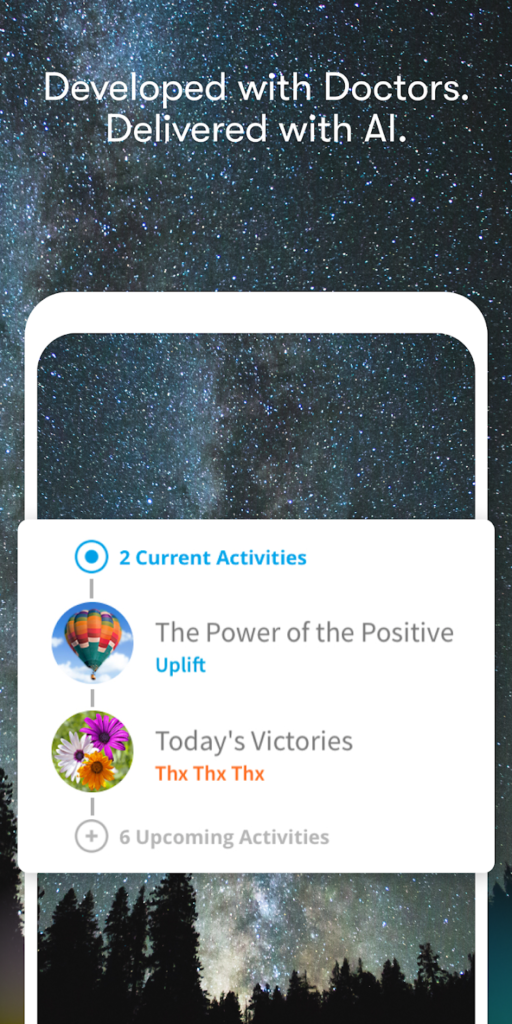
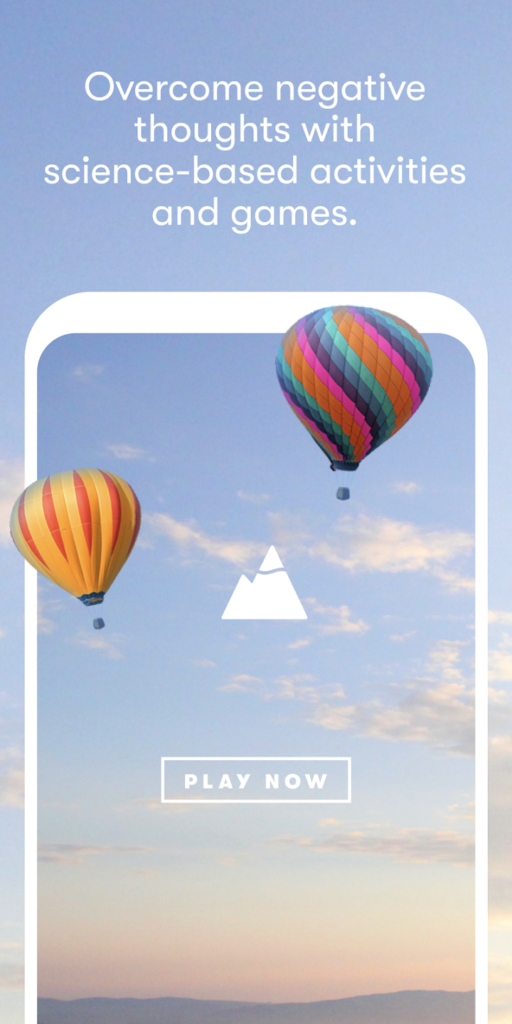
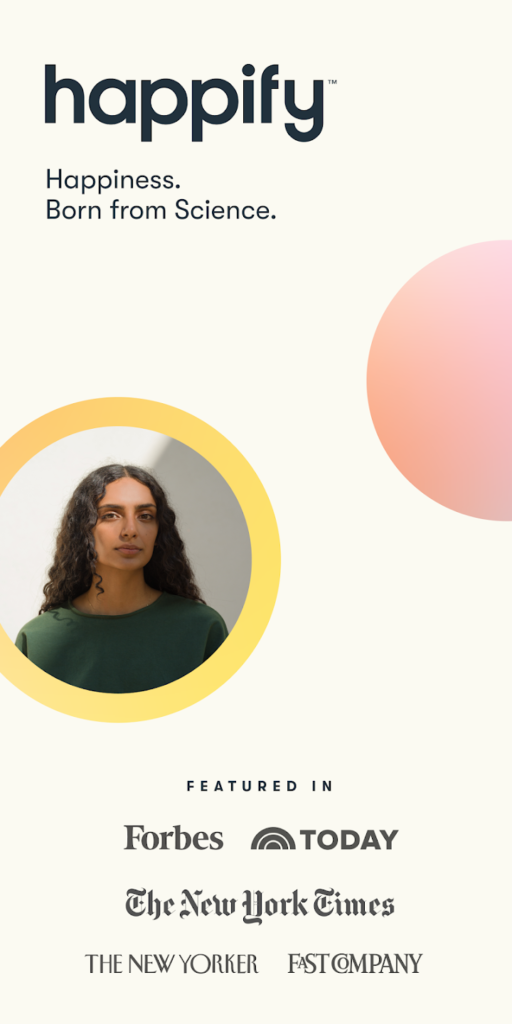
What Sets It Apart:
- Gamified mental health exercises.
- Content addressing racial injustice.
- AI coach for personalized guidance.
Contact Information:
- Website: www.happify.com
- App Store: apps.apple.com/us/app/happify-for-stress-worry
- Google Play: play.google.com/store/apps/details
- Facebook: www.facebook.com/Happifybytwill
- Instagram: www.instagram.com/twill_happify
- Twitter (X): twitter.com/TwillHealth
- LinkedIn: www.linkedin.com/company/twill-health
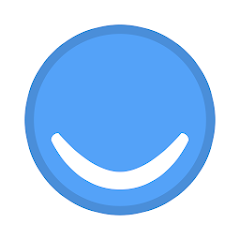
7. Moodfit
This app focuses on mood tracking and mental health tools. Users can log emotions, activities, sleep, and diet to identify patterns. The app provides cognitive behavioral therapy exercises to address negative thinking and stress.
Analytics features generate visual reports to show mood trends and triggers. Users can set custom goals, like tracking hydration or exercise, and access breathing exercises for relaxation. Journaling prompts encourage reflection and gratitude.
The app has a straightforward design, suitable for users who want data-driven insights. Free access includes basic tracking, with premium features available through a subscription. The app is available on mobile devices.
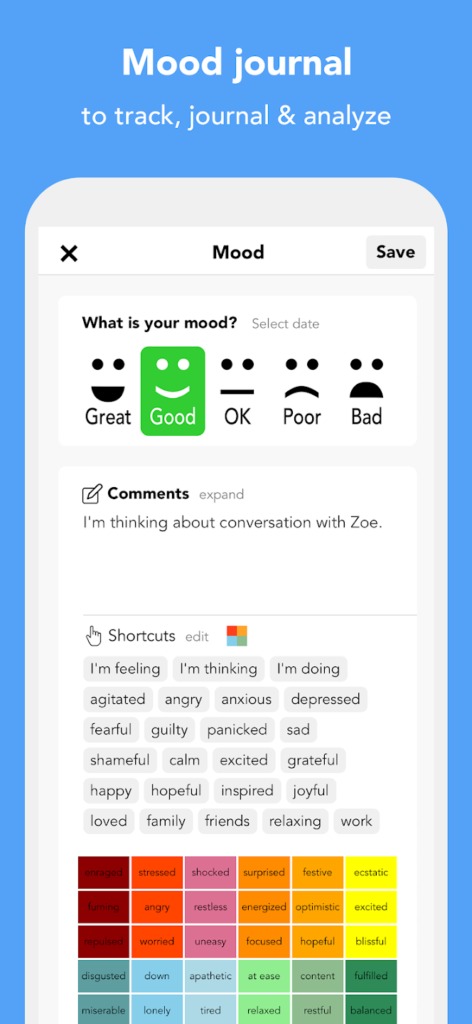
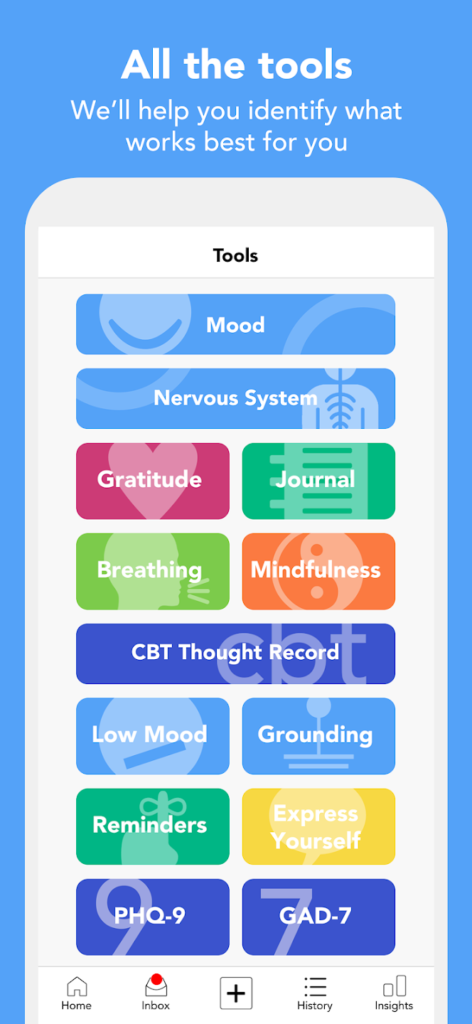
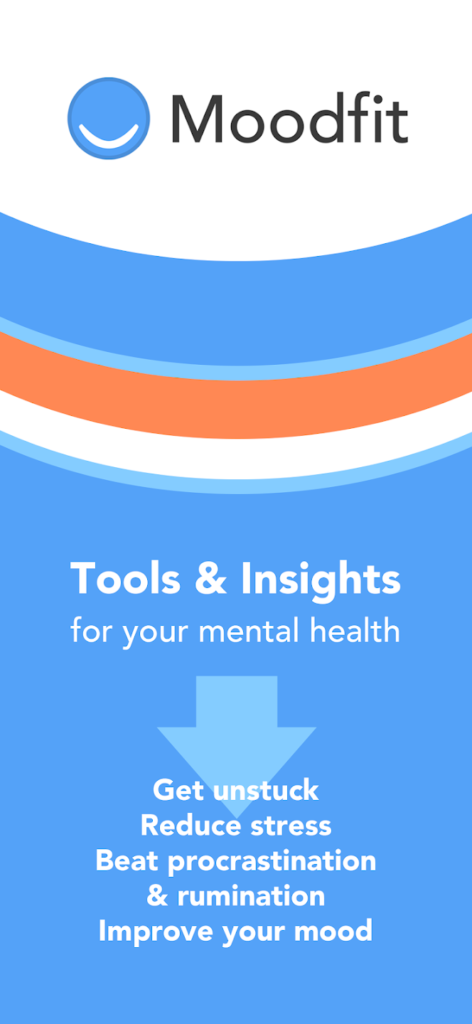
What Sets It Apart:
- Detailed analytics for mood patterns.
- Customizable goal tracking.
- Journaling for gratitude and reflection.
Contact Information:
- Website: www.getmoodfit.com
- App Store: apps.apple.com/us/app/moodfit-mental-health-fitness
- Google Play: play.google.com/store/apps/details
- Facebook: www.facebook.com/getMoodfit
- Instagram: www.instagram.com/getmoodfit
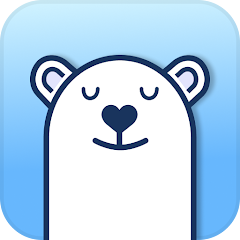
8. Bearable
This app tracks mental and physical health factors, including mood, symptoms, medications, and lifestyle habits. Users can log data like sleep, diet, and exercise to monitor their well-being. The app generates reports for sharing with healthcare providers.
Custom triggers allow users to track specific factors affecting their health. A wellness journal records thoughts alongside data, and reminders prompt consistent tracking. The app supports users with chronic conditions or those seeking detailed insights.
The interface is customizable, with options to focus on specific metrics. Free access provides basic features, while a subscription unlocks advanced tracking and reports. The app is available on mobile devices.
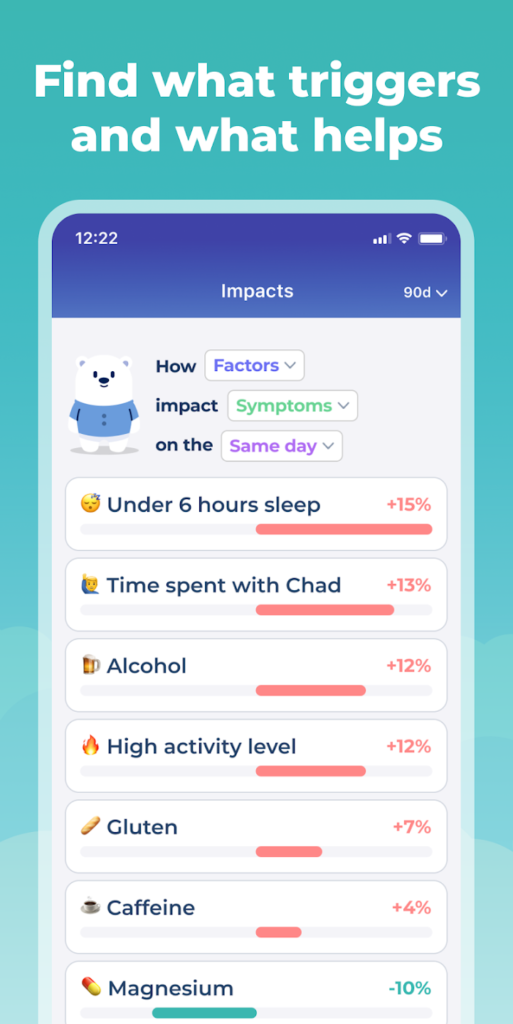
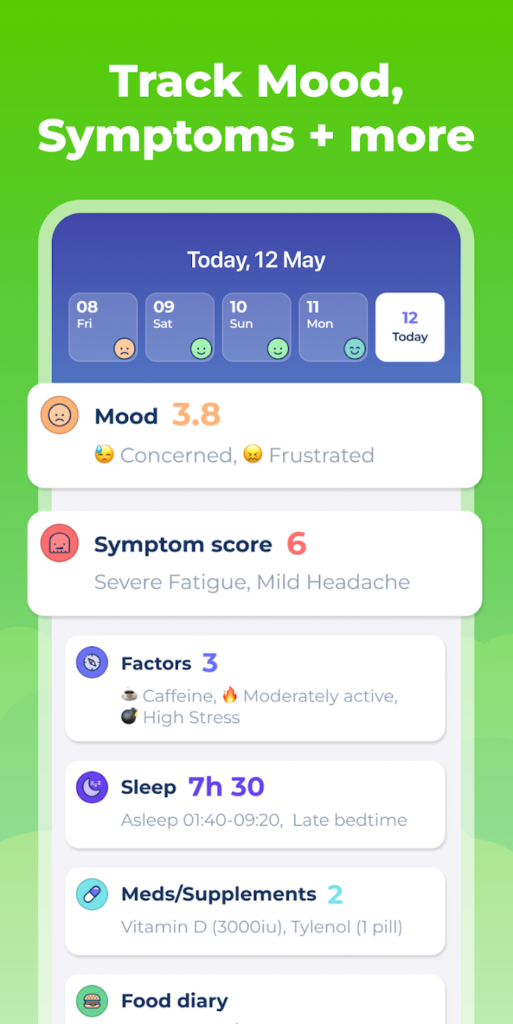
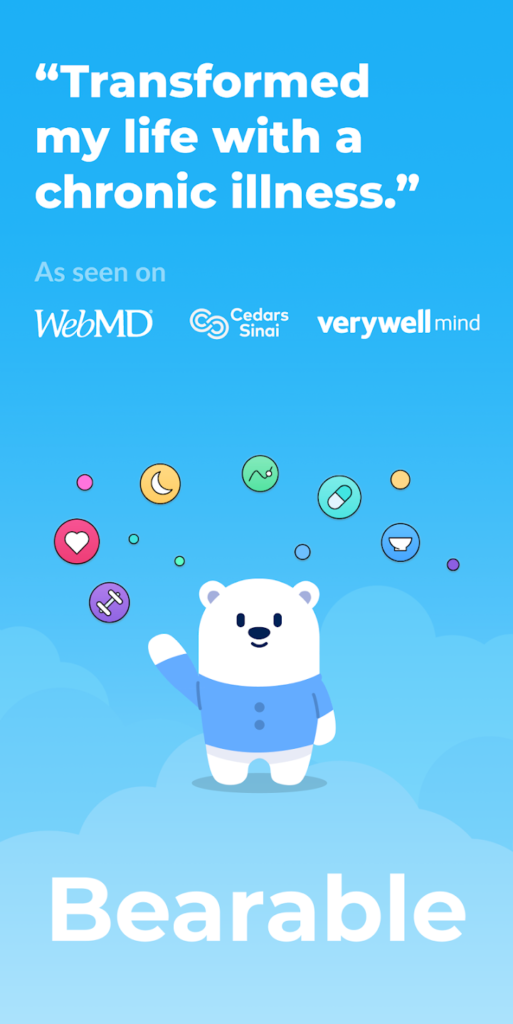
What Sets It Apart:
- Tracks both mental and physical health.
- Custom trigger logging.
- Reports for provider collaboration.
Contact Information:
- Website: bearable.app
- App Store: apps.apple.com/us/app/bearable-symptom-tracker
- Google Play: play.google.com/store/apps/details
- Facebook: www.facebook.com/BearableApp
- Instagram: www.instagram.com/bearableapp
- Twitter (X): twitter.com/BearableApp
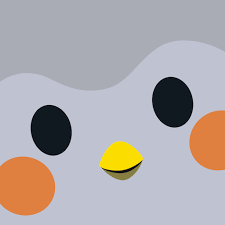
9. Finch
This app uses a virtual pet to encourage self-care habits. Users complete tasks like drinking water or meditating to care for their pet, which grows as habits are maintained. The app includes mood tracking and reflection prompts.
Mini-games offer activities like breathing exercises or gratitude practices. Community features allow users to connect with friends for accountability. The app provides customizable goals to align with user priorities.
The design is interactive and ad-free, with a focus on engagement. Free access includes many features, with a subscription adding more content. The app is available on mobile devices.
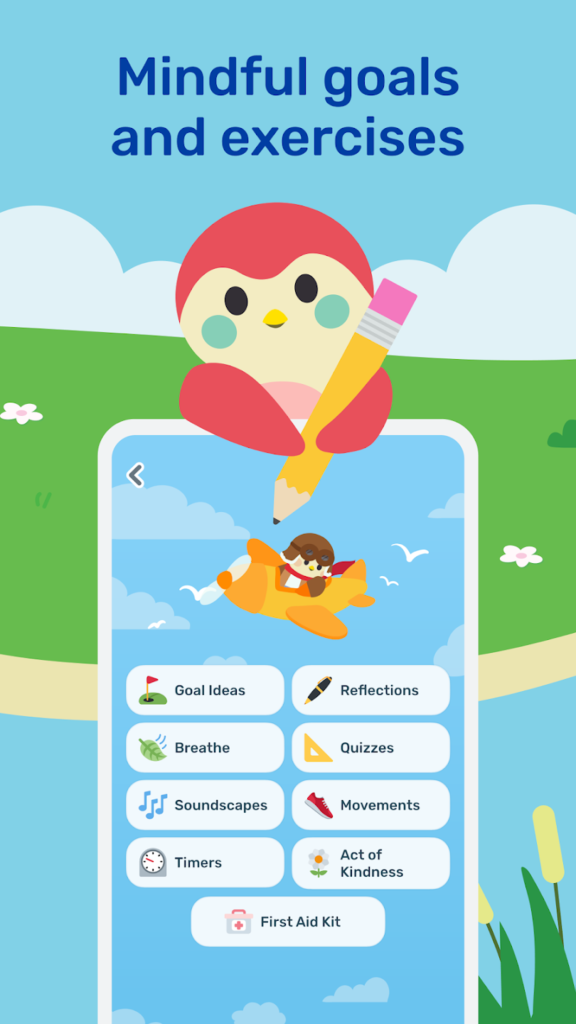
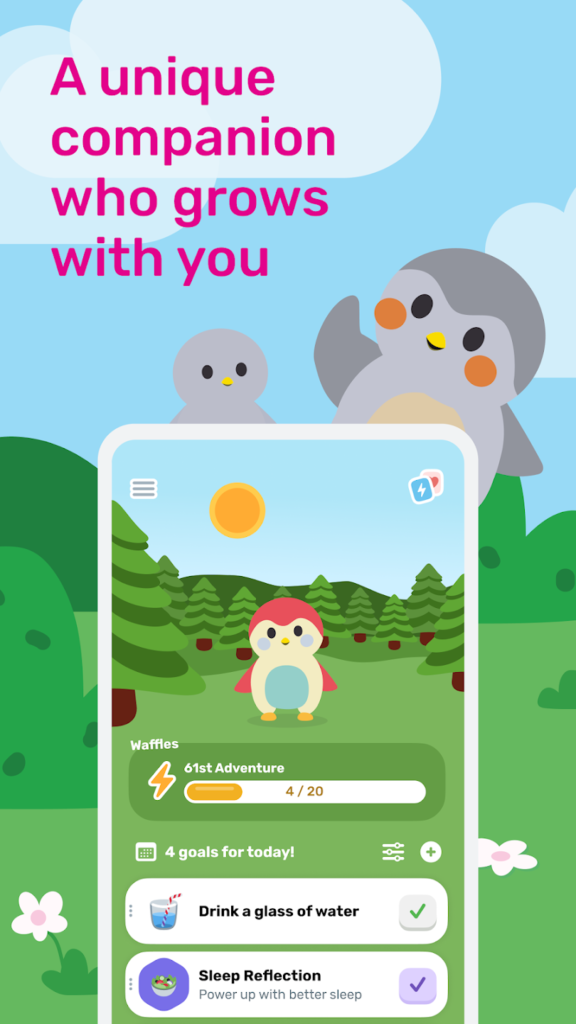
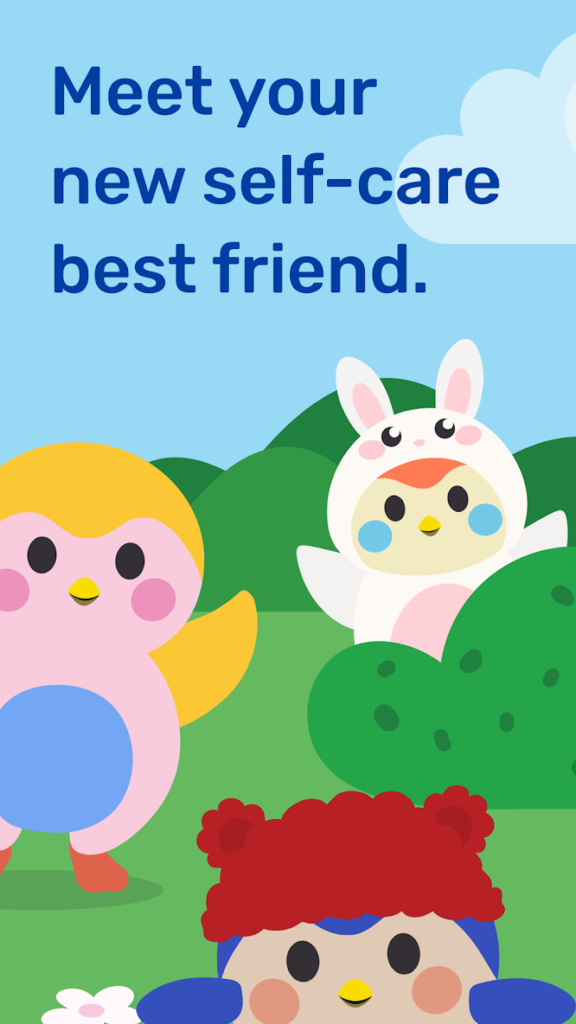
What Sets It Apart:
- Virtual pet for habit motivation.
- Ad-free experience.
- Community accountability features.
Contact Information:
- Google Play: play.google.com/store/apps/details
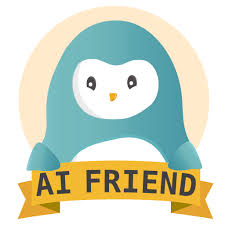
10. Wysa
This app provides emotional support through an AI chatbot using cognitive behavioral therapy and mindfulness techniques. Users can access guided meditations, mood tracking, and exercises to manage stress, anxiety, or grief. Optional human therapy sessions are available.
The chatbot offers personalized responses based on user input, with content tailored to specific needs. The app includes tools for reframing negative thoughts and building resilience. Progress tracking monitors emotional patterns.
The interface is conversational and accessible, designed for mobile use. Free access includes the chatbot and limited features, with subscriptions unlocking more content and therapy. The app is available on mobile devices.
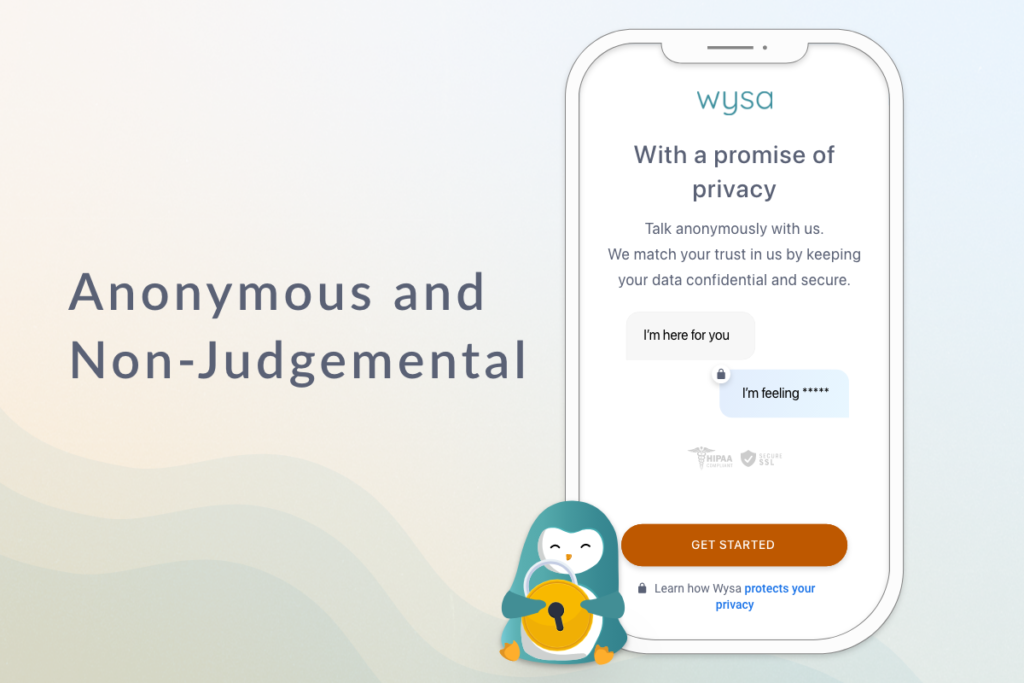
What Sets It Apart:
- AI chatbot for 24/7 support.
- Optional human therapy integration.
- Personalized content delivery.
Contact Information:
- Website: www.wysa.com
- App Store: apps.apple.com/us/app/wysa-mental-health-ai
- Google Play: play.google.com/store/apps/details
- Facebook: www.facebook.com/groups/wysa.buddy
- Instagram: www.instagram.com/wysa_buddy
- YouTube: www.youtube.com/channel/UCG
- LinkedIn: www.linkedin.com/company/wysa-ai
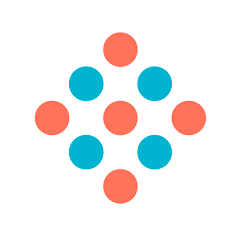
11. NOCD
This app supports users with obsessive-compulsive disorder through therapy and self-guided tools. It offers video-based exposure and response prevention sessions with therapists specialized in OCD. Users can message therapists between sessions.
Self-guided exercises help manage intrusive thoughts and compulsions. Community forums provide peer support, and progress tracking monitors symptoms. The app includes resources to learn about OCD and coping strategies.
The platform is designed for accessibility, with therapy requiring a paid plan. Free resources and forums are available without a subscription. The app is available on mobile devices and computers.
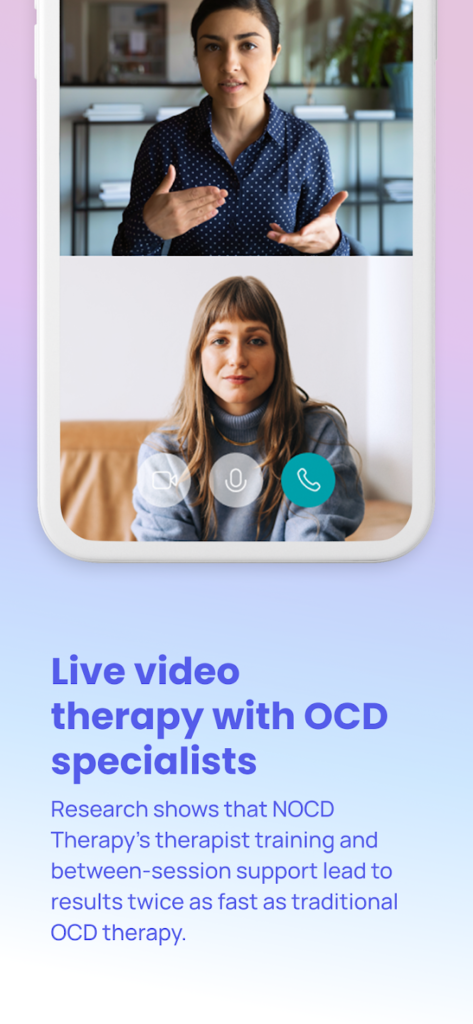
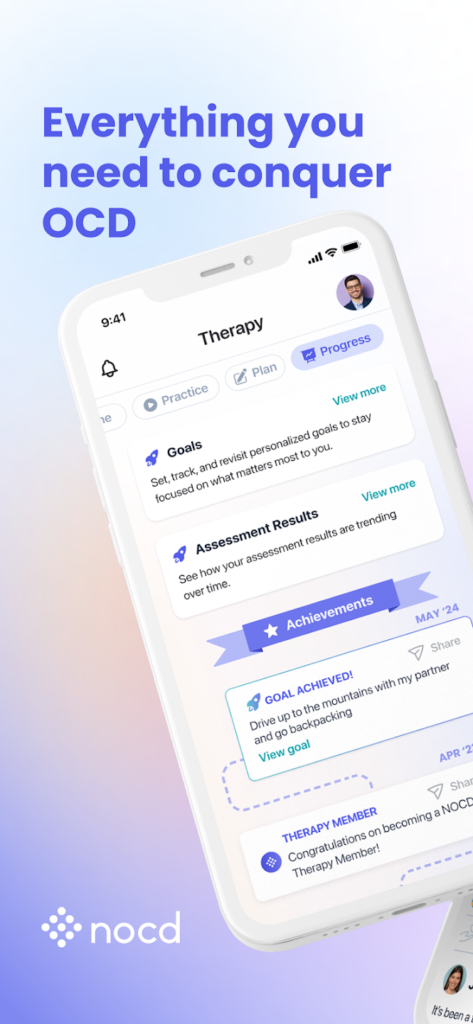
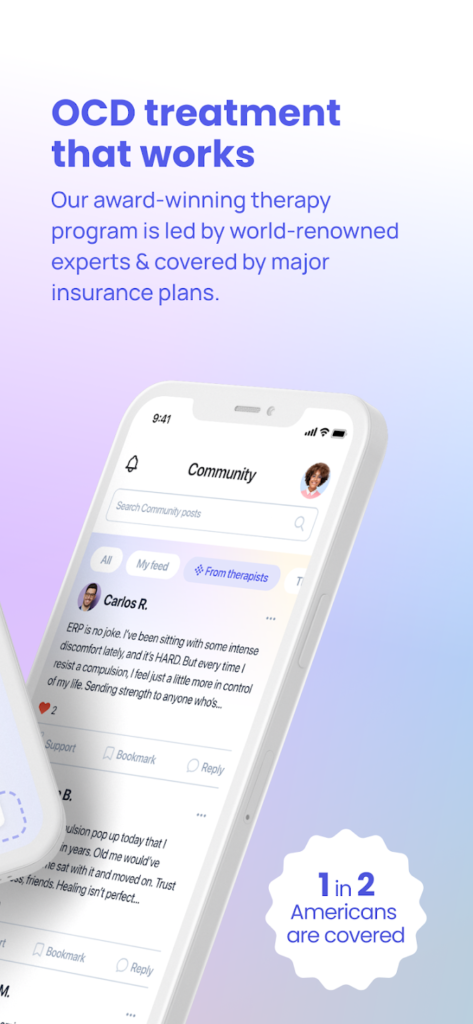
What Sets It Apart:
- OCD-specific therapy focus.
- Community forums for peer support.
- Free educational resources.
Contact Information:
- Website: www.treatmyocd.com
- App Store: apps.apple.com/us/app/nocd-ocd-therapy-and-tools
- Google Play: play.google.com/store/apps/details
- Facebook: www.facebook.com/treatmyocd
- Instagram: www.instagram.com/treatmyocd
- Twitter (X): twitter.com/treatmyocd
- Tik-Tok: tiktok.com/@treatmyocd
- LinkedIn: www.linkedin.com/company/nocd
- YouTube: www.youtube.com/channel/UCU
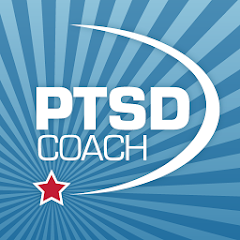
12. PTSD Coach
This app provides tools for managing post-traumatic stress disorder symptoms. Users can access educational content about PTSD, including symptoms and triggers. Self-assessment tools screen for symptoms to guide professional care.
The app includes coping tools like breathing exercises, grounding techniques, and mindfulness activities. Symptom tracking logs stress levels, and crisis resources link to hotlines and support services. Users can customize coping strategies and contacts.
The interface is straightforward, designed for mobile use. The app is free with no paid features. It is available on mobile devices and developed by a government organization.

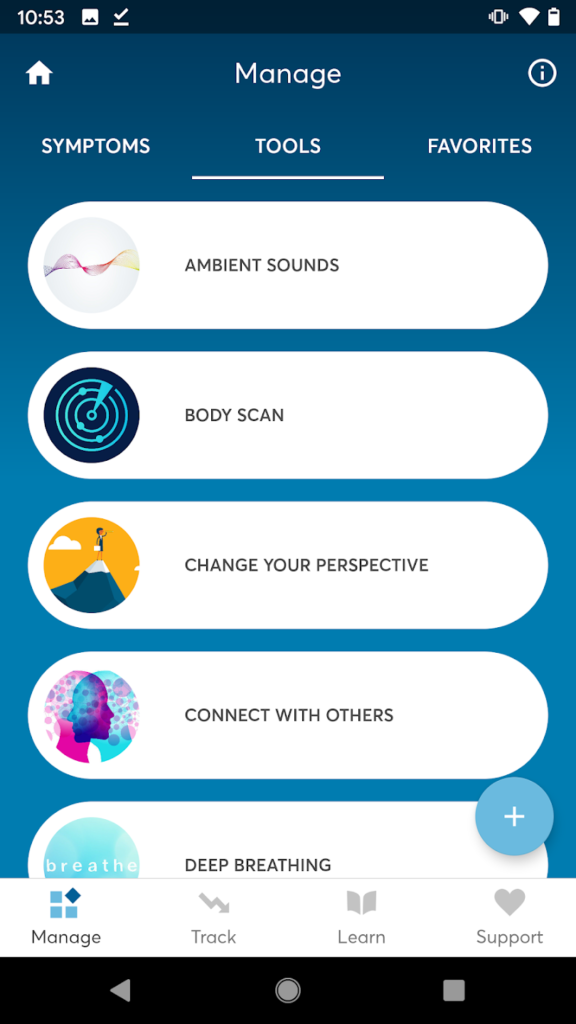
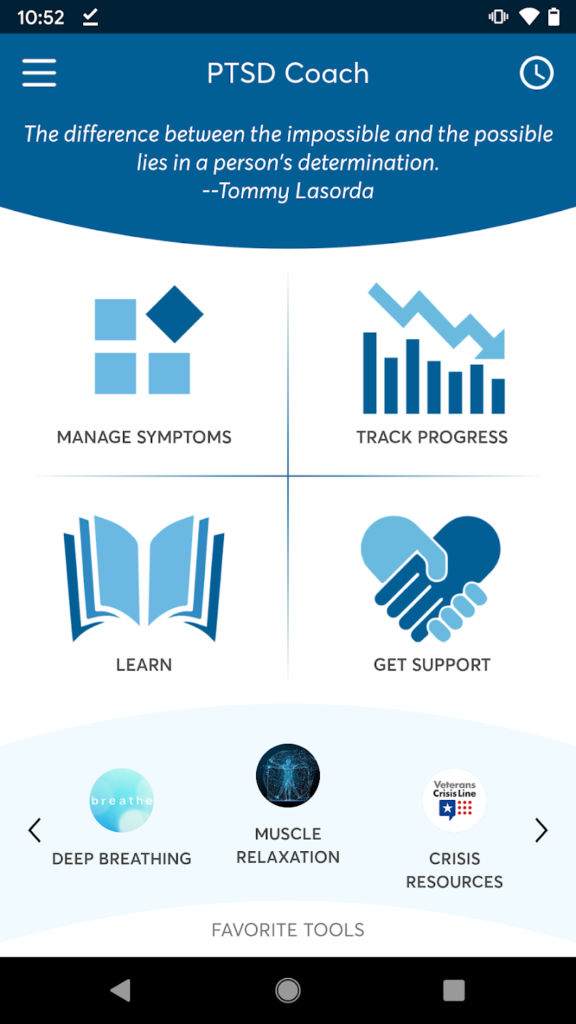
What Sets It Apart:
- Free with no in-app purchases.
- PTSD-specific educational content.
- Customizable coping tools.
Contact Information:
- Website: www.ptsd.va.gov
- App Store: apps.apple.com/us/app/ptsd-coach
- Google Play: play.google.com/store/apps/details
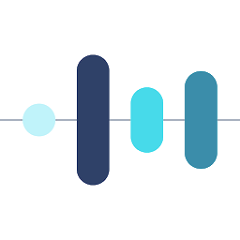
13. eMoods
This app tracks mood and symptoms, with a focus on bipolar disorder. Users can log daily mood, anxiety, energy, and irritability, along with medications and sleep. The app generates reports for sharing with healthcare providers.
Features include tracking custom symptoms and setting reminders for mood entries or medications. The app provides a structured way to monitor mood swings and treatment effects. Data is visualized to show trends over time.
The design is simple, prioritizing data entry and reporting. Free access includes basic tracking, with premium features available through a subscription. The app is available on mobile devices.
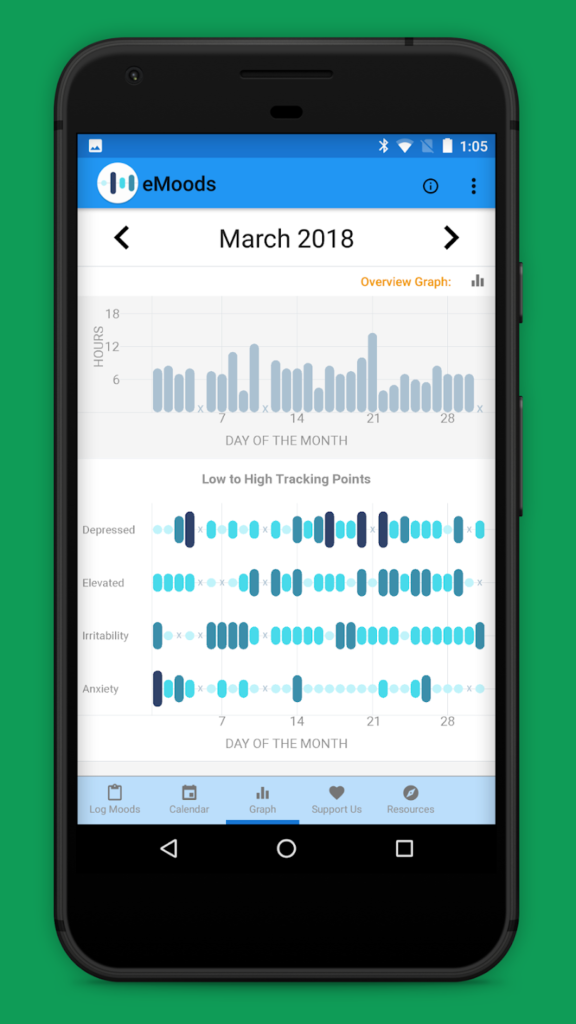
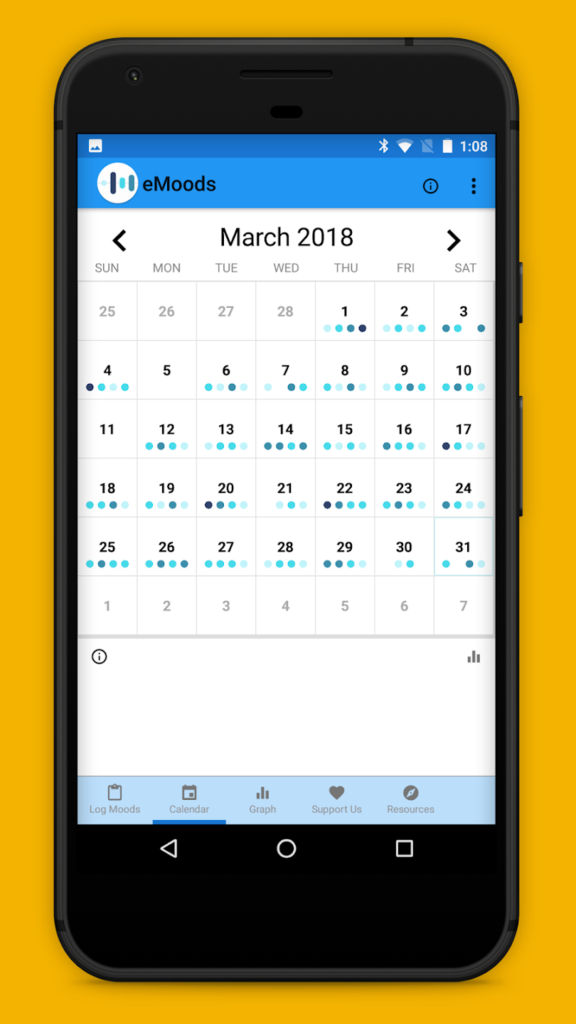
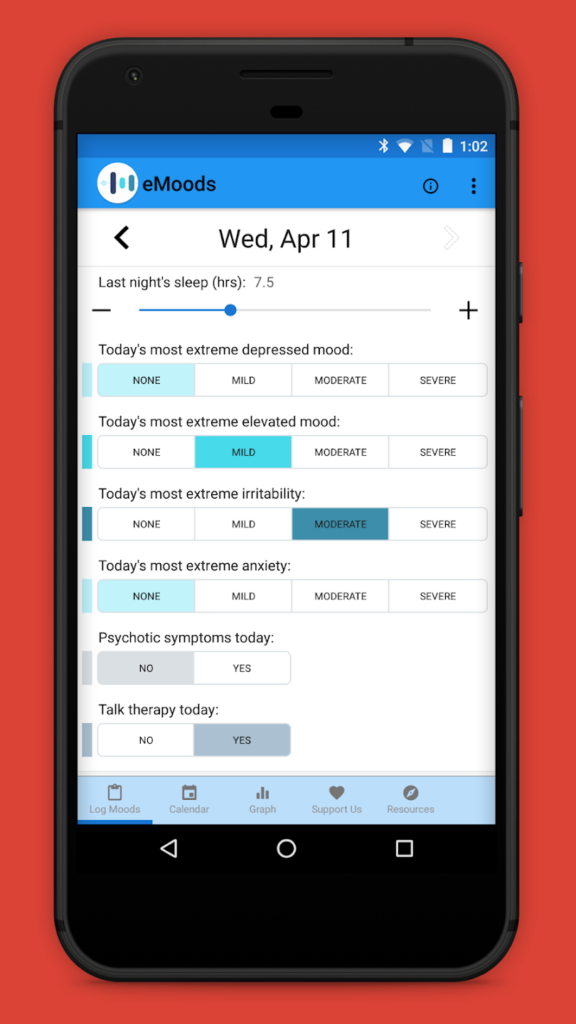
What Sets It Apart:
- Bipolar disorder-specific tracking.
- PDF reports for providers.
- Custom symptom logging.
Contact Information:
- Website: emoodtracker.com
- App Store: apps.apple.com/us/app/emoods-bipolar-mood-tracker
- Google Play: play.google.com/store/apps/details
- Facebook: www.facebook.com/emoodswellness
- Instagram: www.instagram.com/emoodtracker
- Twitter (X): twitter.com/emoodtracker
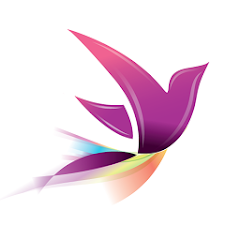
14. Recovery Record
This app supports eating disorder recovery through meal and emotion tracking. Users log meals, thoughts, and feelings to identify patterns. The app includes cognitive behavioral therapy exercises to challenge disordered thinking.
Features allow users to connect with clinicians for real-time feedback. Coping tools like affirmations and distraction techniques are available. Progress tracking monitors recovery milestones and setbacks.
The interface is designed for ease of use, with a focus on recovery goals. The app is free with no paid features. It is available on mobile devices.
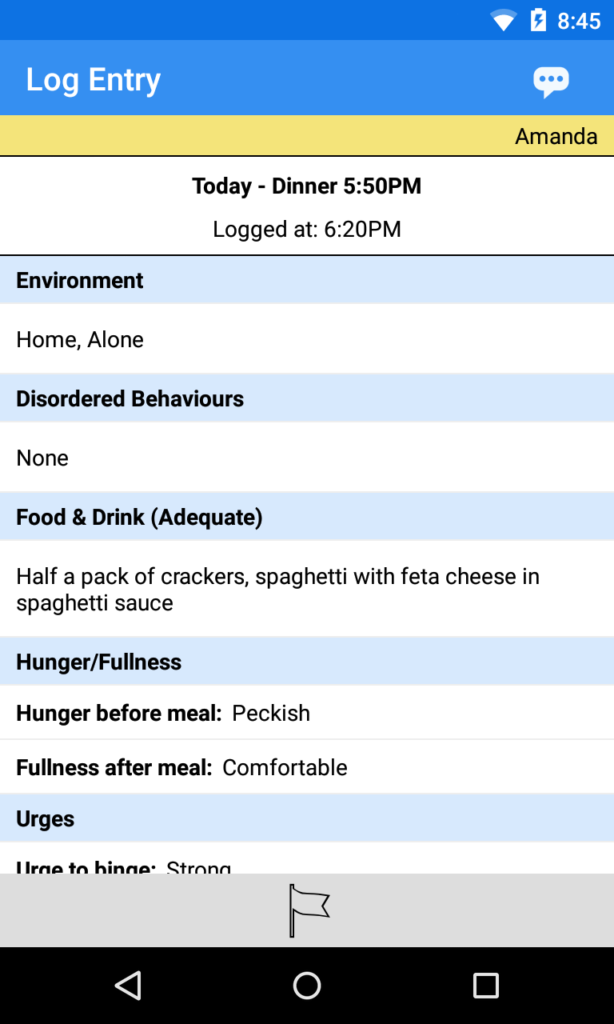
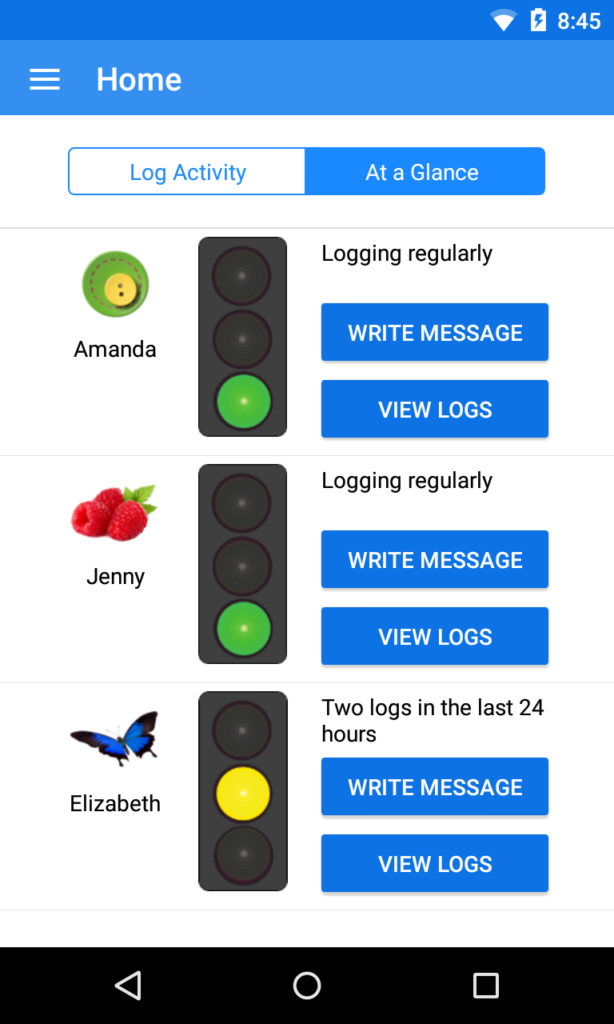
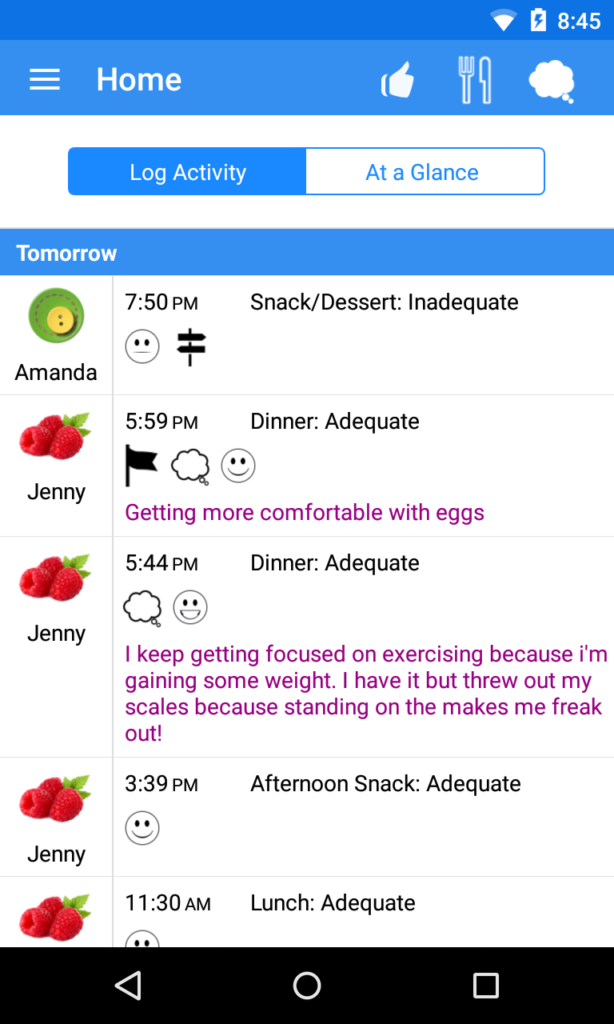
What Sets It Apart:
- Eating disorder-specific focus.
- Clinician data sharing.
- Free with all features included.
Contact Information:
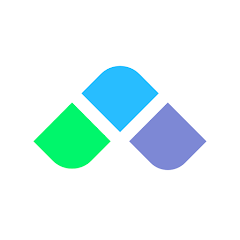
15. I Am Sober
This app tracks progress for sobriety from addictions and other habits, such as online shopping or self-harm Users log sober days and make daily pledges to stay substance-free. The app analyzes triggers to identify relapse risks and tracks financial savings from avoiding substances.
Community features connect users for support and encouragement. Motivational tools include quotes and milestone celebrations. The app provides visualizations of sobriety progress to monitor achievements.
The design is motivational, with a focus on mobile accessibility. Free access includes basic tracking, with premium features available through a subscription. The app is available on mobile devices.
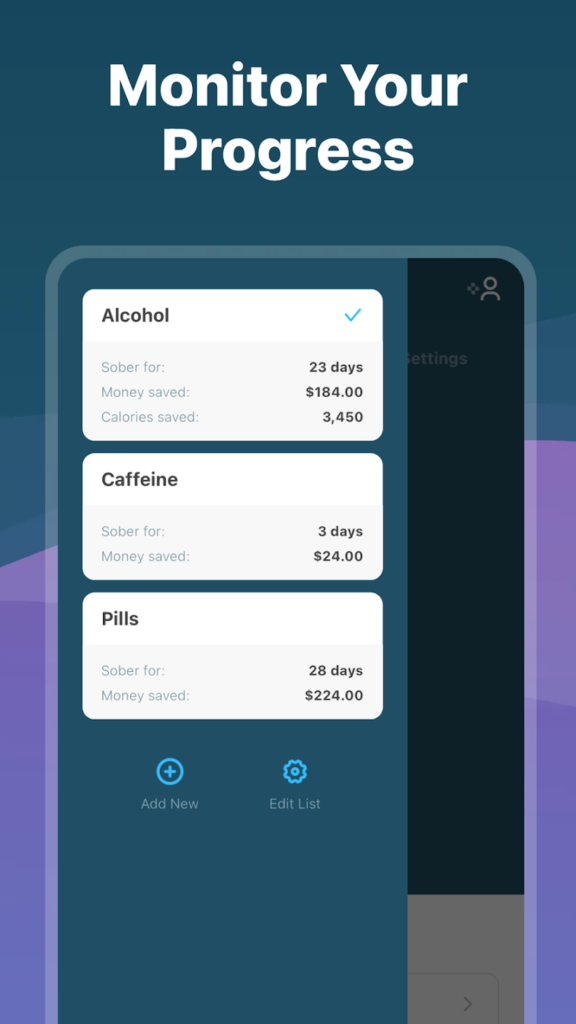
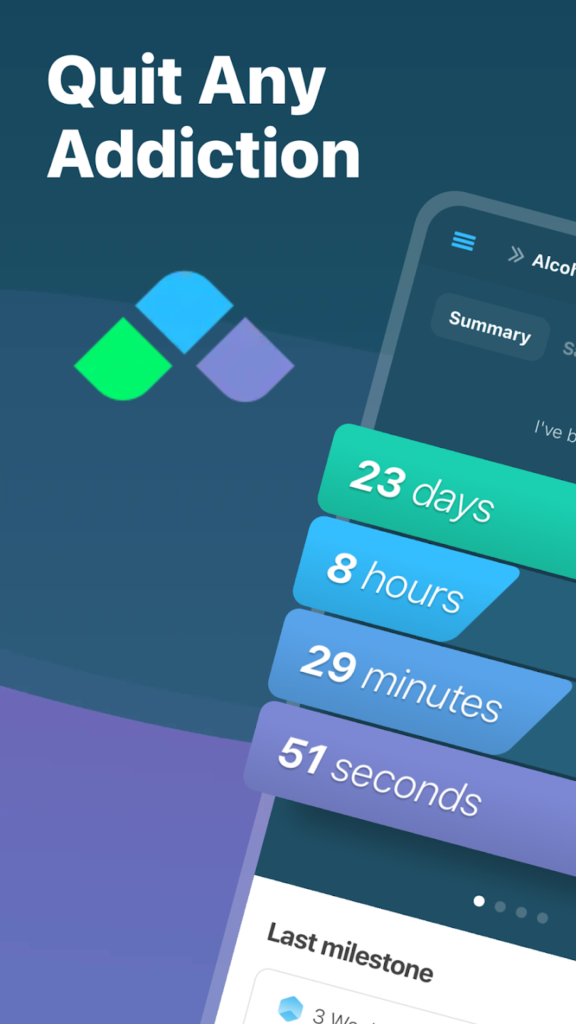
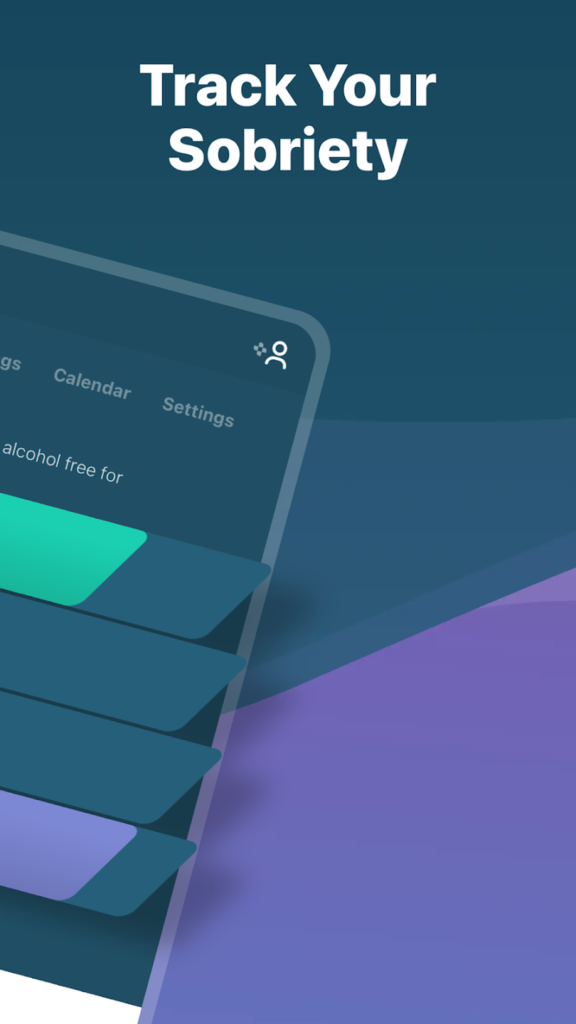
What Sets It Apart:
- Financial savings calculator.
- Daily sobriety pledges.
- Community support network.
Contact Information:
- Website: iamsober.com
- App Store: apps.apple.com/us/app/i-am-sober
- Google Play: play.google.com/store/apps/details
- Facebook: www.facebook.com/iamsoberapp
- Instagram: www.instagram.com/i_am_sober_app
- Twitter (X): twitter.com/i__am__sober
- LinkedIn: www.linkedin.com/company/35530180
Conclusion
Taking care of your mental health doesn’t have to be complicated, and these apps make it easier to fit wellness into your daily routine. Whether you’re meditating with an app like Calm, tracking your mood with Bearable, or connecting with a therapist through BetterHelp, there’s something out there for everyone. Try a few to see what feels right for you, and don’t hesitate to pair them with professional support if needed. Small steps can make a big difference, so start exploring and find the tools that help you feel your best.
